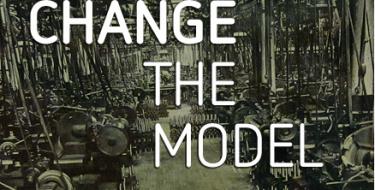Authenticity and the "About Us" Page
Authenticity is something we believe in around here—notwithstanding recent activities to the contrary. We're not the only ones talking about this, of course; consumers have long craved personal and meaningful service from the corporate world. The way to foster this, we believe, is to restore conversation to the marketplace—something a static page on a website doesn't necessarily do.
As such, you might be surprised at my reaction to this blog post arguing for the abolition of "About Us" pages on websites. The author seems to imply that "About Us" pages serve primarily as crutches for those companies unwilling or unable to explain the totality of their organizations in one tagline located on the home page.
Ok, I get her point. Some home pages don't do a particularly good job telling users what the company does or offers. Still, I think she misses the mark by assuming most "About Us" pages are merely lengthy, confusing rehashes of tagline material. Moreover, I disagree that most web users want only to know what a site "is about" within 2.5 seconds.
I don't know about you, but I visit "About Us" pages because I want to learn more than what a tagline tells me—not because I'm confused about what a company offers. In addition, I want to see the story, the people, and the history behind the organization. Disclaimer: This is coming from a guy who thinks the History Channel should stop airing reality shows and bring back stories about, well, history.
Authenticity can't be achieved if an organization is unwilling to reveal itself and relies, instead, on a four-word tagline to converse with its markets.
Consider this issue in human terms. If you meet someone at a conference and his only statement to you is "I'm John—dedicated to dynamic thought and timely delivery," how will you respond? Sure, you'll know what John is mostly about, but I doubt you'll want to learn more. If, instead, John talks to you, explains what he does, where he's from, and what his story entails, you might be intrigued. You might want to have more conversations with John.
The same applies for the "About Us" page. Keep it interesting, keep it human–and keep 'em coming back for more.
MONTHLY MARKETING INSIGHTS.
Get thought-provoking and actionable insights to improve how your firm makes a connection with your customers.





LEAVE A COMMENT
As I was reading your Kill your news page, I also clicked your About Us one from 2008. Very timely for us at HCCArts. On your "kill your news page", I came away with two good points...don't kill our news page but definitely make it more readable, personal; and consider moving news to a blog (which we don't have at this time). We just recently separated out news from community events. We will be using our news page for local, state, and national arts alerts on what's happening that will directly impact our local & Texas artists, arts organizations throughout the Texas Hill Country.
We are in dialogue and strategic planning right now with website a major area of discussion. Your points are well-taken and have passed them along to the board. Thanks. Sharon
... why my "Kill your news section" recommendation isn't an absolute. In fact, the idea of separating content by publishing a blog alongside a news page with alerts may have merit in your own content strategy. That leaves you with a few important points to consider:
— Providing the right "scent" for users to easily navigate to the content they seek.
— Ensuring site visitors do not reach a dead end in aggregated news content (or any part of the site, for that matter).
— Devising ways to measure whether content goals are meeting organizational goals.
Best of luck!